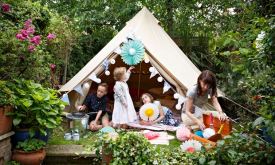Toy company funds research suggesting educational development can be hindered by early formal schooling. So are UK schools getting it wrong?
The Guardian today reports that parents are squeezing the role of play out of their children’s lives in favour of the three ‘R’s as they try to prepare their offspring for a competitive world, according to the head of Lego’s education charity arm.
A lack of understanding of the value of play is prompting parents and schools alike to reduce it as a priority, says Hanne Rasmussen, head of the Lego Foundation. If parents and governments push children towards numeracy and literacy earlier and earlier, it means they miss out on the early play-based learning that helps to develop creativity, problem-solving and empathy, she says.
According to Rasmussen, the evidence for play-based learning has built enormously over the last decade, but parents don’t know about it. “Both in the formal education system and in the homes of children, the focus on the value of play is rather limited. That’s really something we want to work on – to improve the understanding of the value of play and what play really can do, where more and more it is squeezed by a desire both from the formal system and from parents that children should learn specific literacy and numeracy quite early.”
The intervention by Rasmussen directly challenges the knowledge-based, heavily tested approach to schooling favoured by the UK government – and questioned by many education practitioners.
The 29-year-old Lego Foundation, generously funded with a quarter of Lego’s post-tax profits, is beginning to flex its muscles. Where once it quietly dished out cash – and bricks – to lots of small projects, it has set its sights on campaigning for a mindset change in education around the world. “Our contribution to the world is to challenge the status quo by redefining play and reimagining learning,” says the foundation’s mission statement.
Part of the mission involves putting £4m into a new ‘Lego professorship’ at Cambridge University – the first incumbent will be chosen in April – and supporting an accompanying Centre for Research on Play in Education, Development and Learning (Pedal). There are more links with Harvard, MIT and other prestigious institutions. The aim is to provide an incontrovertible academic underpinning to the educational value of play, and to define more clearly what works and how to measure it, arming Lego with more evidence to support its campaigning.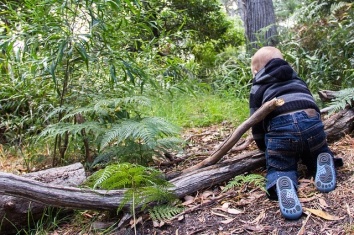
But can a toy company – albeit the largest in the world and so famous that its every move makes news (David Beckham builds Lego “to relax”; Ai Weiwei embarrassed “non-political” Lego into bulk-selling him bricks for art) – really influence the way our children learn? Conquering the globe with little red and yellow bricks is one thing; changing the minds of governments is another.
As a child in Denmark in the 1970s, Rasmussen recalls there was more time to play simply because there were fewer of the planned activities that clog up the timetables of today’s over-scheduled children. “We had more room to actually engage and keep ourselves entertained and we learned through that and we grew in many different ways through that,” she says. She and her sister played with Lego, but Rasmussen’s real joy was her years in the sea scouts, when she and three or four other teens would island-hop at weekends on a small boat off the coast close to the Danish capital, adult-free and entirely independent.
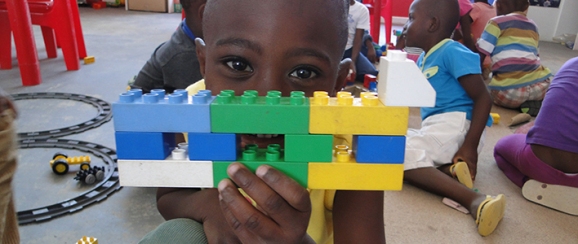
©LEGO Foundation
“All over the world, we see parents spending much energy doing the best for their child, and play is not on that list because they don’t have the background to understand what it could do.”
The problem is not that parents don’t have their child’s best interests at heart, she says. But “global competition, economic development – that has put fear or a concern into parents and into governments over how do we become relevant in 15 years or even right now”.
Countries fear seeing their young people left behind, their workforce made irrelevant. “And in that situation what the parent says is, ‘I want my child to have a job, without a job the child will not have a good life, so what can I do to prepare the child?’ And the answer often ends up being more focus on specific skills, and earlier and earlier.”
Rasmussen laments that “barriers in systems – school systems, homes, longstanding institutions that run on their own structures and methodologies” make it a “heavy, heavy task” to change things. Here in the UK – with a school starting age some three years earlier than that of our Scandinavian neighbours, “instructional” learning from the outset and external testing of seven-year-olds in literacy and numeracy – the barriers look pretty solid.
Lego identifies five types of play – physical, symbolic, with rules, with objects, and pretence – and points to the variety of skills developed through each. Even tech-driven play – that source of guilt and respite for so many parents – can fit in: not mindless screen-gawping but activities in which children can “engage with the technology”, or what Lego calls “hands-on, minds-on”. Its second definition of play is a playful state of mind in which, Rasmussen says, “you are open and try different things and are in a positive flow”.
Nailing the benefits of play seems a bit like describing beauty – the essence of it seems somehow diminished by scientific analysis – but research findings are accumulating.
A Cambridge University project, funded by the foundation, saw children devise, tell and act out stories with Lego before writing them down, with play shown to boost narrative and writing skills, as well as interaction and cooperation. The Cambridge study centre will now look into how early play relates to other aspects of young children’s development, explore what happens to the brain during play and conduct a longitudinal study examining what promotes children’s playfulness and how it helps learning and wellbeing.
With strong evidence of the power of play, parents and politicians can be convinced, Rasmussen says. It’s not a question of rejecting the importance of the “content” so beloved of Conservative education secretaries, “but things are changing so fast in our society so the understanding of how you gain and use content knowledge is for us much, much more important. It has to be a balance. You need skills to interact with others, to be able to seek knowledge yourself, because learnings will get outdated.”
An early school starting age need not necessarily be harmful, she says, providing the learning is based on whole-child development and not “sitting at a desk”. But, in contrast to the UK system, she advocates children learning through play well into key stage 2: “In the early years – and that’s up to around eight – a play-based methodology makes a lot of sense.” She cites New Zealand research indicating that early formal literacy lessons do not make children any better readers by age 11, and may even put them off reading.
If Lego is right, then in Britain, with our early formal schooling, we’re getting it wrong. Critics might say that the Lego Foundation – though separate from Lego’s commercial arm – is simply about flogging more models of the Star Wars Millennium Falcon. But, Rasmussen points out, Lego isn’t producing pro-play research itself: the findings come from some of the most esteemed universities on the planet. The Lego link does not compromise the argument, she insists. “We certainly believe the brick is a very, very valuable tool in learning through play but is it the only way or only tool? No, certainly not.”
Can Lego really persuade fearful parents and governments to trust in play? It’s a safe bet that most of its audience will at some time have locked a few Lego bricks together – and just might be willing to listen.
Visit LEGO Foundation at http://www.legofoundation.com/en-gb/.
Visit LEGO at http://www.lego.com/en-gb.
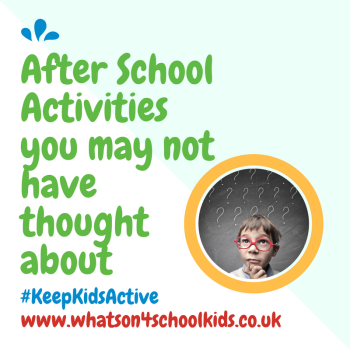 extra-curricular activities outside of the classroom that will peak their interest. But that’s just not true.
extra-curricular activities outside of the classroom that will peak their interest. But that’s just not true.
 he quickest and cheapest fund-raising ideas having to suffice, with more exciting methods resigned to ‘maybe one day’. Teachers and parents everywhere are feeling the pressure to raise money for their schools in a fun and creative way, but time and financial constraints often result in generic fundraising events. It is no secret that schools are more pushed than ever for resources, and the need to raise funds in an enjoyable yet simple way is greater than ever.
he quickest and cheapest fund-raising ideas having to suffice, with more exciting methods resigned to ‘maybe one day’. Teachers and parents everywhere are feeling the pressure to raise money for their schools in a fun and creative way, but time and financial constraints often result in generic fundraising events. It is no secret that schools are more pushed than ever for resources, and the need to raise funds in an enjoyable yet simple way is greater than ever.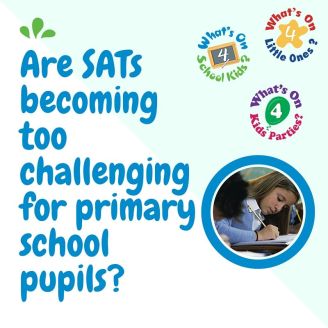 celebration assemblies throughout the UK recognising our children’s academic and non academic achievements, maybe it’s time to reflect ourselves on some of the hurdles that our little ones will have to or have had to jump.
celebration assemblies throughout the UK recognising our children’s academic and non academic achievements, maybe it’s time to reflect ourselves on some of the hurdles that our little ones will have to or have had to jump.
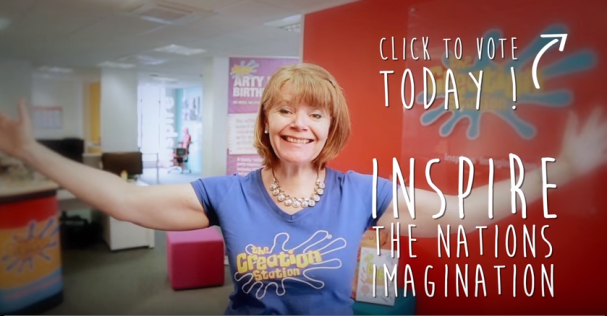
 great way for your children to burn off energy before they get their hands on any tasty treats. The garden or local park makes the perfect hiding place for these goodies, keeping your children active whilst they race around looking for them. For older children, you might want to introduce a scavenger hunt theme. Providing clues to where the next egg lies will help keep the game fun and engaging. Just remember not to go overboard, as the harder the clues, the higher the chance of your child growing bored of hunting.
great way for your children to burn off energy before they get their hands on any tasty treats. The garden or local park makes the perfect hiding place for these goodies, keeping your children active whilst they race around looking for them. For older children, you might want to introduce a scavenger hunt theme. Providing clues to where the next egg lies will help keep the game fun and engaging. Just remember not to go overboard, as the harder the clues, the higher the chance of your child growing bored of hunting.









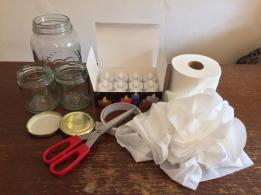
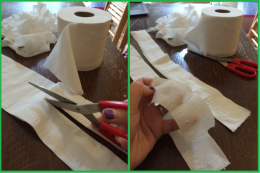
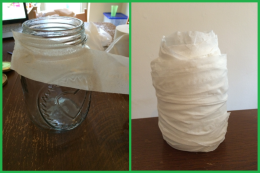 shoulder (if you are
shoulder (if you are 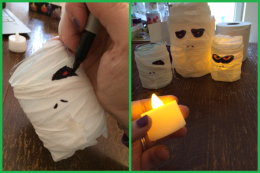 friends at PK Green will be using #PKScream to give away some awesome Halloween goodies via their Twitter page. Don’t miss out – head over and
friends at PK Green will be using #PKScream to give away some awesome Halloween goodies via their Twitter page. Don’t miss out – head over and 


